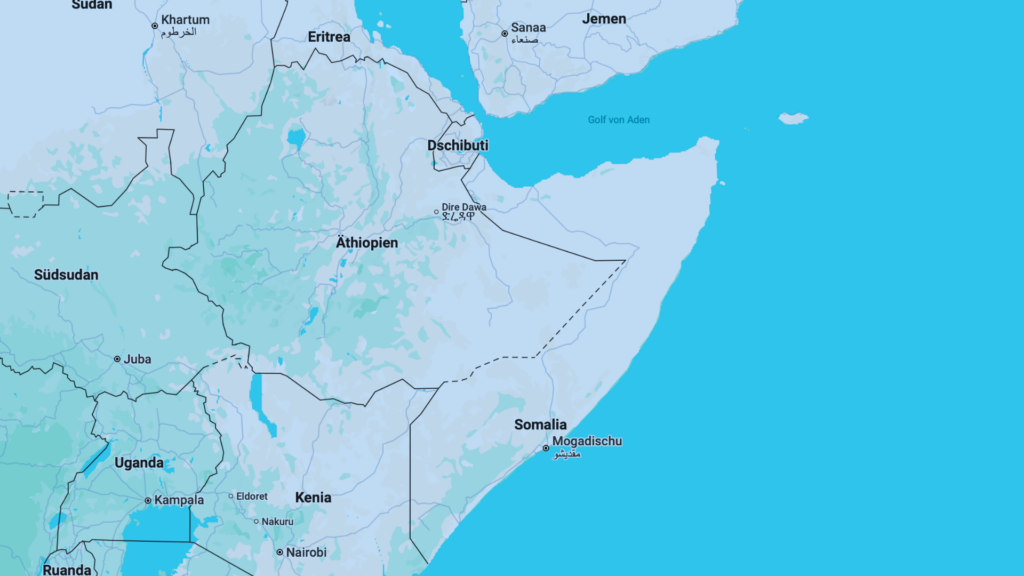Illegal Moves Against Somalia: The Geopolitical Struggle Over Somaliland

Somalia stands out as a unique cultural entity in Africa. Unlike most nations on the continent that are home to diverse ethnicities, languages, and religions, Somalia is unified by one language, Somali, one ethnicity, and a predominantly Islamic population. Despite this homogeneity, colonial powers and their tools have historically exploited internal divisions, particularly the qabil (clan) system, to destabilize the country.
The qabil system, a cornerstone of Somali society, is both a source of solidarity and division. Organizing Somali society into major clan families such as Darod, Hawiye, Isaaq, Rahanweyn, and Dir, the system influences social identity, political power, and cultural practices.
Colonial powers, struggling to “divide and conquer” Somalia due to its relative cultural cohesion, found this internal dynamic an entry point. It was manipulated to fragment the nation politically and socially.
Foreign Interference and the Collapse of Somalia
The post-independence period saw Somalia embroiled in regional and international power plays, with Western powers and neighboring states like Ethiopia and Djibouti accused of fostering instability.
Ethiopia, in particular, has been a central player in efforts to undermine Somalia’s sovereignty. Its 2006 invasion of Somalia under the guise of combating terrorism created conditions that enabled the rise of extremist groups like Al-Shabaab, further destabilizing the nation.
Moreover, countries that sought to support Somalia’s unification and stability, faced punitive measures. Eritrea, for instance, was sanctioned under accusations of supporting Al-Shabaab, an allegation that was later proven to be unfounded. Thus, these sanctions were more about curtailing Eritrea’s influence in fostering Somali unity than addressing regional security concerns.
Somaliland: A New Geopolitical Battleground
As Somalia begins to rebuild and assert its sovereignty, new challenges have emerged. A particularly contentious issue is the status of Somaliland, a self-declared independent region in the north that seeks recognition as a separate state.
Internationally recognized as an autonomous region of Somalia, Somaliland has been pushing for recognition, citing its distinct colonial history under British rule and relative stability compared to the rest of Somalia.
However, Ethiopia’s recent moves to support Somaliland’s recognition as an independent state have drawn sharp criticism from Somalia. This interference, many argue, is a direct attack on Somalia’s sovereignty and a violation of international norms.
Analysts contend that Ethiopia’s actions are not merely about supporting Somaliland but also about advancing its own strategic interests and those of its financiers, notably the United Arab Emirates (UAE).
The UAE has increasingly been implicated in the destabilization of the Horn of Africa, with its involvement in the conflict in Sudan and now Somalia drawing widespread condemnation. Critics argue that Ethiopia’s backing of Somaliland serves UAE interests, particularly in securing strategic ports and expanding its influence in the Red Sea region.
The Broader Implications
For Somalia, the recognition of Somaliland as an independent state would represent a serious setback in its efforts to rebuild a unified and stable nation. It would also set a dangerous precedent for secessionist movements across Africa, potentially unraveling borders established in the post-colonial era.
Somali officials have called on the international community to respect Somalia’s territorial integrity and to refrain from actions that could exacerbate divisions.
Somalia thrives when its sovereignty is respected.
As Somalia regains its footing after decades of turmoil, it is imperative that external actors support its sovereignty rather than exploit its internal challenges for geopolitical gain.
Somalia’s journey to recovery is fraught with challenges, not least of which is the persistent meddling by regional and global powers. The nation’s unique cultural and historical cohesion offers hope for its future, but only if its sovereignty is respected and external interference is curtailed.
The illegal moves to support Somaliland’s recognition are not only a direct affront to Somalia’s sovereignty but also a reminder of the enduring legacy of foreign exploitation in Africa.
For Somalia to fully reclaim its place as a unified and stable state, it will need both internal resilience and unwavering international support for its territorial integrity.

